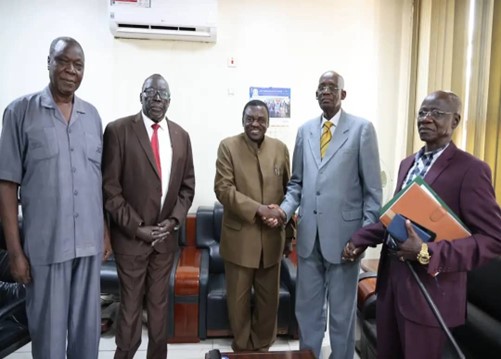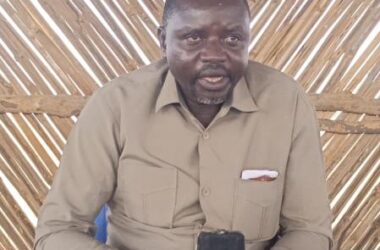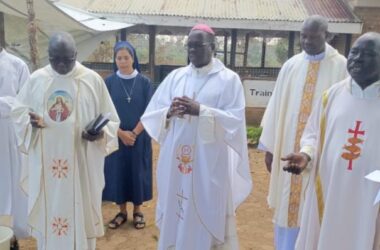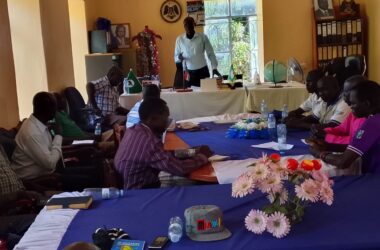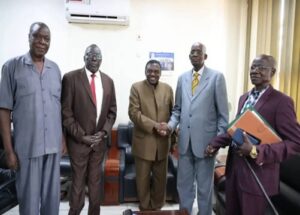
By Kei Emmanuel Duku
The Governor of Central Equatoria State (CES), Rabi Mujung Emmanuel, met with the Supreme Court Chief Justice and other members of the judiciary on Tuesday to push for the establishment of special courts. The move is aimed at addressing a rise in land disputes and other criminal activities across the state.
While addressing the media after the meeting the leadership of the judiciary, Governor Mujung said the meeting was prompted by a directive from President Salva Kiir for all state agencies to address the issue of land grabbing. During the visit, the discussions focused on the need for a dedicated court to handle land-related conflicts and murder cases, which the governor described as a growing concern.
Governor Mujung also brought up the recent surge in criminal activities, including murders and organized gang violence, which are often referred to as “Nigas and Toronto activities.” He stated that some deaths initially ruled as suicides were, in fact, criminal acts. To combat this criminal network, the state authorities formally requested that the judiciary create a special court for public order cases.
In the meeting, Governor Mujung reiterated a request from the Jackson Wani Mule Commissioner of Kajo-Keji County to have the judiciary send second and third-grade judges to the county. The goal is to address a significant backlog of pending cases.
The governor and his team expressed their gratitude to the Chief Justice and the Supreme Court for their support. He noted that the discussions were fruitful and that the judiciary agreed to consider the requests from the Juba City Council and the Central Equatoria State government to establish the special courts to address the rampant crime cases.
Central Equatorial State being the host of the capital of South Sudan faces persistent challenges with land disputes and criminal activities. Land conflicts often arise from overlapping claims, a lack of clear ownership documents, and rapid urban expansion. These disputes often turn violent and are a major source of insecurity.
Simultaneously and other urban centres in the state have seen an increase in various forms of crime, including armed robberies, murders, and organized gang violence, often perpetrated by youth groups. The informal justice system and a backlog of cases in formal courts often fail to address these issues effectively, leading to a sense of impunity and a lack of public trust.
The government’s decision to seek special courts is an attempt to create a more efficient judicial mechanism to handle these complex and sensitive cases.

